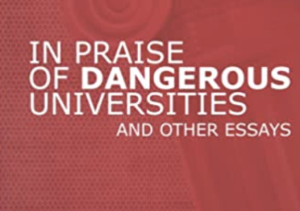Over 50 colleges and universities in Canada have now signed the Scarborough Charter on Anti-Black Racism and Black Inclusion. This is unfortunate, as the Charter is a profoundly anti-academic document. That so many institutions signed it does not bode well for higher education in this country.
The Charter addresses five main areas: hiring, curriculum, research, ways of knowing, and responding to anti-black racism.
Hiring – According to the Scarborough Charter, universities need to hire more black professors, appoint more black administrators and staff members, and recruit more black students. Universities should take being black to be in an applicant’s favour. Even better, some faculty appointments should be reserved for black scholars.
The obvious response is that a university cannot hire the best professors and recruit the most promising students by focusing on such an academically irrelevant characteristic as race. The best teachers, researchers, and students are to be identified by evaluating the dossiers of individual applicants against academic criteria alone.
But will not black people feel set apart if they are not represented on campus in large enough numbers? The answer is that academics should see themselves as academics, as people living the life of the mind in a community of others living the life of the mind. The community is welcoming to all those who enjoy the ethos of a university community. And that ethos prevails when the commitment of those in the community to live the life of the mind is strong. Hiring on grounds other than academic merit diminishes that commitment and diminishes the education that students will receive.
Curriculum – The Charter recommends more courses in black history and culture, and more discussion of black people and anti-black racism. To meet the goal of more black content, the Charter recommends that administrators use carrots and sticks to encourage departments and professors to alter their course-offerings.
A university might well want to increase black content in its programs and courses in order to promote depth or comprehensiveness, or because students are asking for more black content. But decisions about curricula must be left to the departments and to the individual professors rather than imposed from the top-down. Department autonomy and academic freedom in teaching benefit both the students and the broader academic community by ensuring that professors are teaching what they understand to be important and what they are passionate about.
Research – Traditionally, research that comes from universities has been valued above research from company laboratories, government agencies, or partisan think tanks because it is perceived to be less constrained by the interests of its sponsors. Researchers outside universities are expected to draw conclusions that the sponsors approve. University researchers, on the other hand, set their own research agendas and are free to follow the argument and evidence where it goes. Because university researchers are moved by their concern simply to understand things, their research is more trustworthy.
The Scarborough Charter, though, directs that “research about Black communities or that is likely to affect the welfare of Black communities respects principles of co-construction.” Co-construction amounts to giving leaders in black communities a veto over research design and publication. As such, it is a recipe for substandard or fraudulent research and scholarship.
Ways of knowing – The Scarborough Charter calls for “decentering epistemic Eurocentrism” to make room for “Black expertise and knowledges.” In the Charter, “making room” suggests accommodating and, in fact, approving black knowledge or ways of knowing not because they might be true, but because they are associated with black people. But at a university, black expertise and knowledge, if such things exist, must not be protected or placed out of reach of criticism. Traditions are not to be kept separate and curated, as though they were museum objects. At a university, traditions and ideas are to engage critically with each other. Scholars must be free to discuss the strengths and weaknesses of whatever ways of knowing present themselves.
Responding to anti-black racism – Finally, according to the Scarborough Charter, the way to combat anti-black racism on campus is through increased administrative oversight. However, this will lead to administrative bloat and divert money from academic programs. As well, Charter universities are enjoined to revise their “disciplinary measures and protections against reprisal.” This will affect freedom of expression on campus and academic freedom, as students and professors will self-censor rather than risk saying something that might get them into trouble.
Whatever barriers might still exist against the full participation by black students and professors in institutions of higher education, those barriers are best addressed simply by insisting on fairness and maintaining high academic standards.
Mark Mercer is a professor of philosophy at Saint Mary’s University in Halifax and president of the Society for Academic Freedom and Scholarship. He is the author of the Frontier Centre book In Praise of Dangerous Universities and Other Essays which can be purchased from Amazon here.



